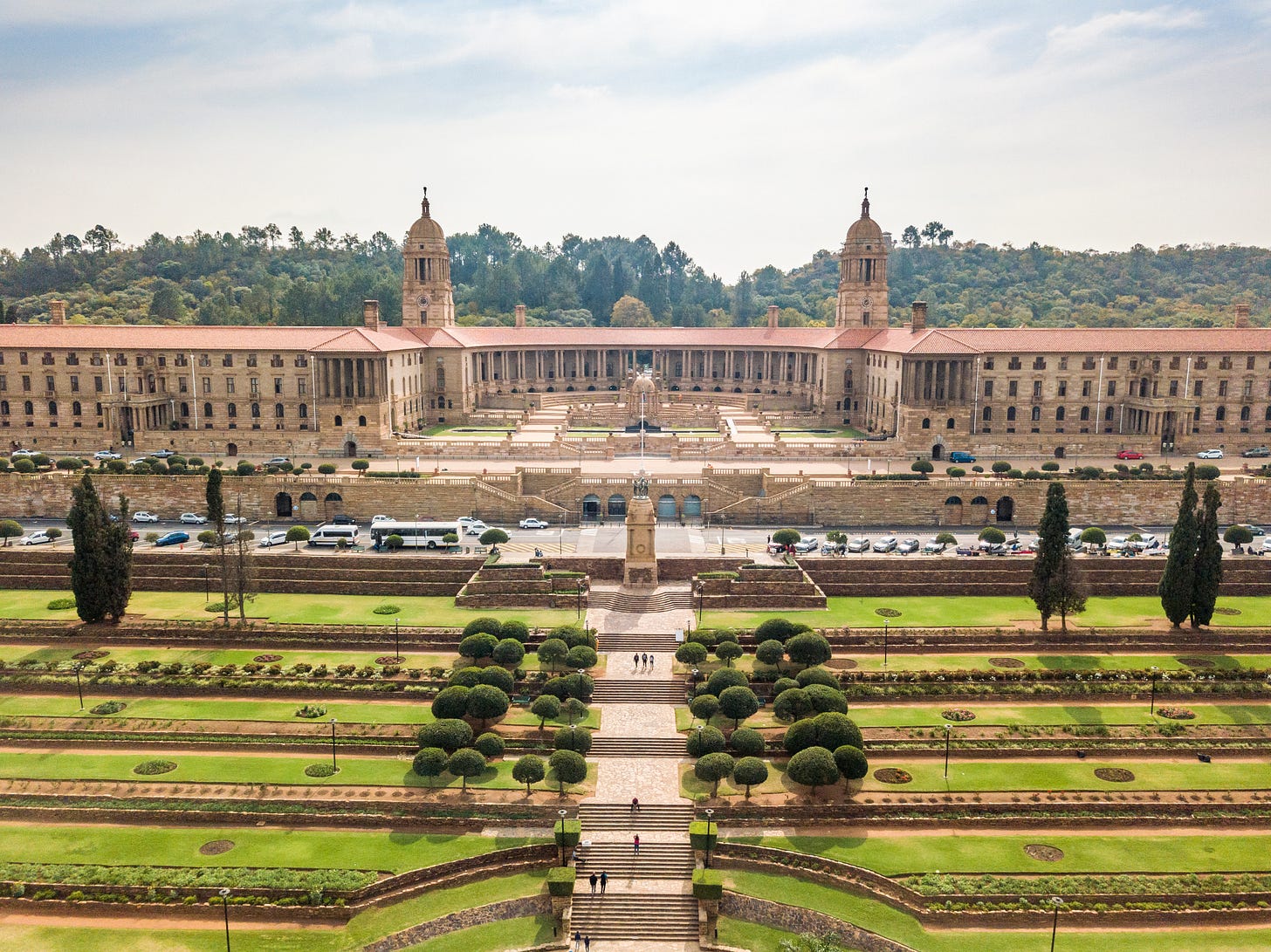South Africa's 2024 Elections: A Big Deal for a Growing Democracy
South Africa's 2024 elections could redefine its political landscape and international stance, especially within BRICS, amid challenges like corruption, unemployment, and strained ANC popularity.
As South Africa gears up for its general elections on May 29, 2024, the nation stands at a critical juncture, grappling with its internal challenges and its role on the global stage, particularly within the BRICS alliance. This election not only marks a significant phase in South Africa's democratic journey but also holds the potential to reshape its international alignments.
Political Landscape and Key Contenders
The African National Congress (ANC), under President Cyril Ramaphosa, is striving to hold its ground amid declining popularity. In the 2019 elections, the ANC secured 57.5% of the vote, but recent polls suggest a potential drop below the majority mark. The main opposition, the Democratic Alliance (DA) led by John Steenhuisen, and the Economic Freedom Fighters (EFF) headed by Julius Malema, are both poised to capitalize on the ANC's vulnerabilities.
A notable development in this election cycle is the emergence of the Umkhonto we Sizwe (MK) party, founded by former president Jacob Zuma. This new party, named after the military wing of the ANC during apartheid, aims to sway traditional ANC supporters, potentially altering the electoral landscape, particularly in key battlegrounds like KwaZulu-Natal.
Voter Sentiments and Major Issues
South Africans are expressing deep concerns over issues such as corruption, unemployment, and service delivery, which have been exacerbated by the energy crisis and rising crime rates. The disillusionment with the ANC's governance, highlighted by its handling of these crises, is palpable among the electorate. The ANC's campaign focuses on its historical achievements and promises of stability, while opposition parties are calling for urgent reform and accountability.
International Relations and BRICS Dynamics
The 2024 election holds significant implications for South Africa's international stance, especially within the BRICS group. Recent political developments in Russia and the upcoming elections in India add layers of complexity to the dynamics within BRICS. South Africa's role and its strategic decisions post-election could influence the group's approach to global economic issues and geopolitical challenges.
Ambassador Maqetuka's Insights and Concerns
Ambassador Mzuvukile Jeff Maqetuka's recent statements really show how South Africa has to walk a fine line in its foreign relations, especially with Russia. In his full interview with TASS, Ambassador Maqetuka talked about several important things related to the bilateral relations between South Africa and Russia, including the historical ties and the strategic partnerships within the BRICS framework. His thoughts show that South Africa is serious about strengthening economic ties with Russia. He says that trading in national currencies is important to help South Africa gain more economic control within the BRICS group.
However, the ambassador expressed concerns about how international dynamics might affect South Africa's trade and diplomatic efforts. He pointed out the challenges posed by the withdrawal of international payment systems like Visa and Mastercard from Russia, which complicates financial transactions and could affect trade dynamics between the two nations. This issue shows how geopolitical tensions and sanctions affect South Africa's ability to maintain and expand its international trade relations.
Broader Implications for BRICS and Global Positioning
The ambassador's concerns and insights are particularly relevant as South Africa evaluates its role within BRICS post-election. With Russia facing international sanctions and diplomatic isolation from Western countries, South Africa's position could become more complicated if it continues to strengthen ties with Russia. The outcome of the South African elections could thus have significant repercussions for its international standing and its role within BRICS, potentially influencing the group's collective approach to global economic challenges and geopolitical conflicts.
Conclusion
As South Africans prepare to vote, the outcomes of this election will have an impact beyond its borders, influencing economic policies, international alliances, and regional stability. The world is watching as South Africa decides its path forward, not just for the next five years but for its future as a key player on the international stage. The election results will reflect the domestic priorities of South Africans and shape the country's engagements within BRICS, impacting its economic and diplomatic relations in a rapidly changing global environment.






